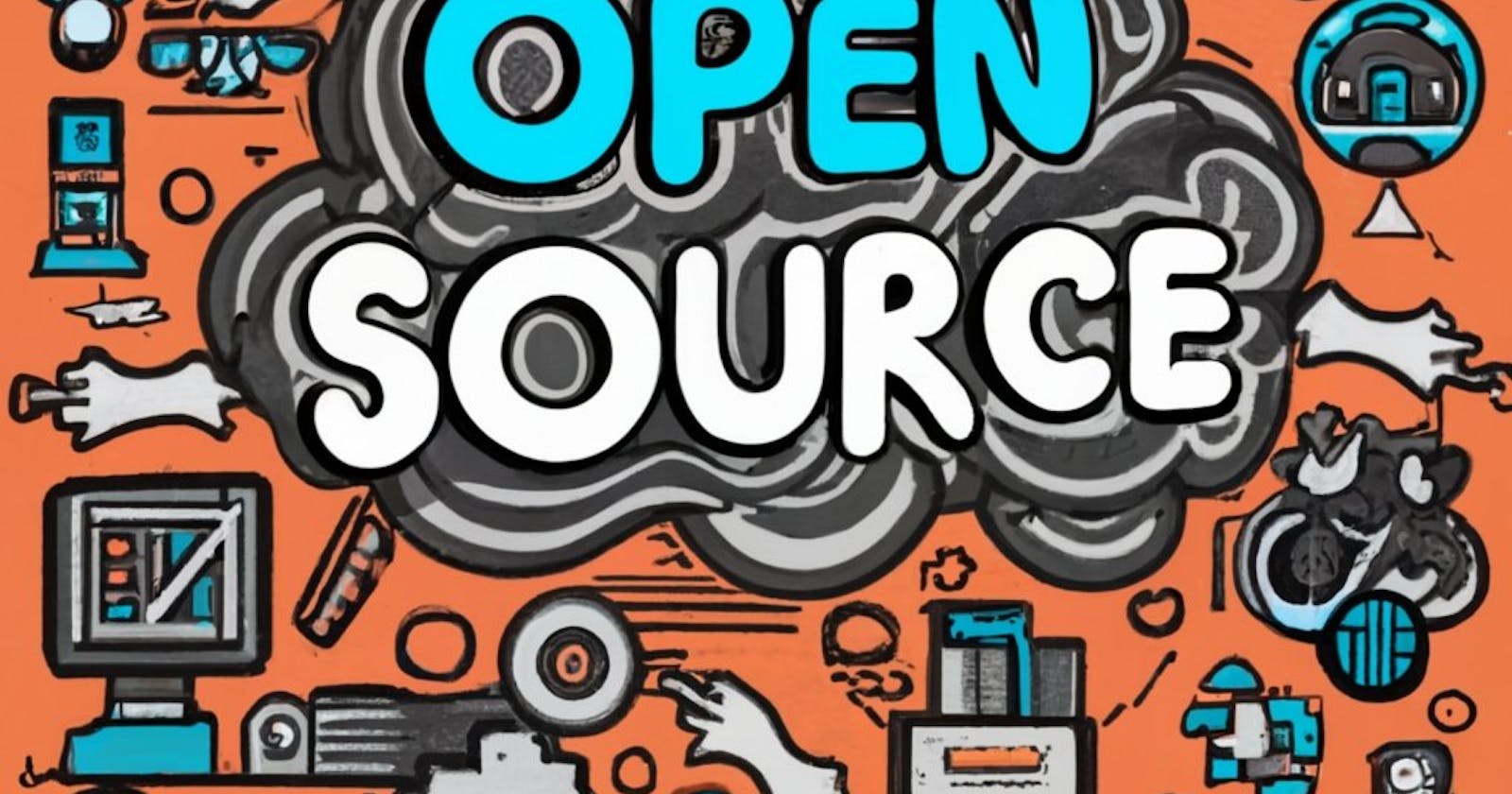Introduction
Hey there, fellow web developer! Have you ever considered diving into the exciting world of open-source contributions? If you're passionate about coding and looking to expand your horizons, this blog is for you. We'll walk you through the ins and outs of contributing to open source as a web developer, from finding the right project to collaborating effectively.
Why contribute to Open-source?
Before we dive into the how-to's, let's first understand why contributing to open source is such a rewarding endeavour.
Skill Development: Contributing to open source allows you to hone your coding skills. You'll work on real-world projects, learn from experienced developers, and gain practical experience.
Building a Portfolio: Open-source contributions are a fantastic addition to your developer portfolio. They showcase your abilities and dedication to potential employers.
Community and Networking: You'll become part of a vibrant developer community. Collaboration with others, sharing knowledge, and networking can be incredibly fulfilling.
Giving Back: Open-source software benefits the world by making technology accessible to all. By contributing, you're giving back to the global developer community.
Now that we've covered the "why," let's delve into the "how."
Finding Open Source Projects
Utilize Specialised Platforms:
Beyond GitHub, there are specialized platforms that focus exclusively on open-source projects. These platforms can help you find projects more aligned with your interests and expertise.
a. GitExplore:
- GitExplore (gitexplore.com) is a dedicated platform that offers advanced search and filtering options, making it easier to discover open-source projects across multiple hosting platforms.
b. CodeTriage:
CodeTriage (codetriage.com) is a platform that sends you personalized open-source issues to your inbox daily. You can subscribe to projects based on your interests and skill level.
Participate in open-source events:
Open-source events, such as Hacktoberfest, are great opportunities to find and contribute to projects. During these events, maintainers often tag issues as "beginner-friendly" or "Hacktoberfest" to attract new contributors.
Read Documentation and README files:
When you find a project that piques your interest, thoroughly read its documentation and README files. This will give you insights into the project's goals, how to set it up locally, and the contribution process.
Explore Niche Communities:
If you have a particular niche interest or specialization, explore niche communities and forums related to that area. Niche projects may not always be prominently featured but can offer unique and rewarding contributions.
Look for projects with Active Maintainers:
Projects with active maintainers are more likely to provide timely feedback and support to contributors. Check the project's commit history and communication channels to gauge activity levels.
Contributing to Open-Source projects
Fork the Repository:
Click the "Fork" button on the project's GitHub page to create a copy of the repository in your GitHub account.
Clone the Fork:
Use
git cloneto download your forked repository to your local machine.Create a Branch:
Create a new branch for your contribution using
git checkout -b branch-name.Make your Contribution:
Work on your contribution, whether it's fixing a bug, adding a feature, or improving documentation.
Commit and Push:
Use
git committo save your changes locally andgit pushto update your fork on GitHub.Create a Pull Request(PR):
- Go to the original project's GitHub page, and you'll see an option to create a PR from your forked repository. Explain your changes and submit the PR.
Effective Collaboration Tips
Contributing to open source is a collaborative effort. Here are some tips to make your journey smoother:
Read the Contribution Guidelines: Each project has its guidelines. Make sure to follow them closely.
Start Small: Begin with smaller tasks to get familiar with the project's workflow.
Ask for Help: Don't hesitate to ask questions or seek guidance from project maintainers and the community.
Be Patient: Open source maintainers and contributors come from diverse backgrounds and time zones. Be patient when waiting for feedback or responses.
Review Others' Work: Reviewing pull requests from others is a great way to learn and contribute.
Stay Consistent: Make regular contributions to projects you're interested in. Consistency is key.
Share Your Knowledge: Blog about your open-source journey, share your experiences, and help others get started.
Remember, contributing to open source is not just about writing code; it's about being part of a collaborative and supportive community.
Conclusion
So, fellow web developers, whether you're fixing a bug in a popular framework, enhancing the user interface of a vital application, or simply helping to improve documentation, your contributions matter. You are shaping the future of technology, one commitment at a time.
As you explore, code, and collaborate, you'll find your skills sharpened, your network expanded, and your passion for coding reignited. Open source is a beautiful world filled with opportunities for growth and impact.
So, go ahead—find those projects, write that code, and make your mark on the open-source landscape. Your journey has just begun, and the possibilities are endless.
Happy coding, and may your open-source contributions be both fulfilling and transformative! 🚀🌍💻.
We hope that you would have found this article helpful. If yes, then do read some of our other works too! For more such amazing content, make sure to visit our Website here.
LET'S TAKE YOU FORWARD :)
